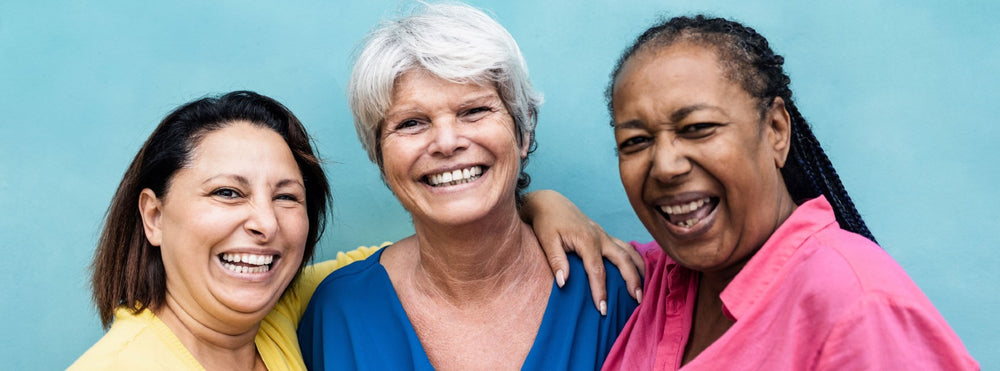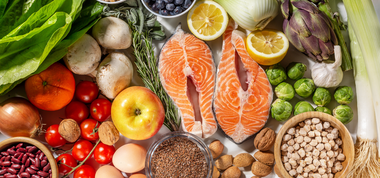Women’s Health Month: How to keep your heart healthy after menopause

There are many reasons to celebrate the end of menopause: No more night sweats! No more hot flashes! A full night’s sleep!
Unfortunately, heart health is not one of them. Women enjoy a significant advantage over men in terms of developing atherosclerotic disease (plaque build up in artery walls), lagging by about 10 years behind their lesser halves – until they go through menopause. After that, they catch up quickly, reaching parity with men about 10 years after their last period. In some sense, it’s as if nature doesn’t think we have much of a role anymore. If we can no longer propagate the species, there’s little reason to keep us around. However, just because we can no longer bear children, doesn’t mean we can’t have a meaningful impact on those around us – or society as a whole.
The bad news is that heart disease remains the number 1 killer of women, even though it’s a predominantly preventable condition. The good news is that if you’ve racked up a life of healthy habits, you probably don’t need to change much. And, even if you haven’t, there’s still time to make changes and reap benefits from improved habits.
But if there’s ever been a time to be extra vigilant regarding heart health, this is it.
If you’re healthy with no familial risk of heart disease, you may want to simply keep a close eye on risk factors such as cholesterol and blood pressure (see complete list below). If your cholesterol does start creeping up, remember that statins don’t have to be the first thing you turn to. After all, high cholesterol is almost never an “emergency.” Which means you have time to modify any inputs that could be contributing to any abnormal readings. As you know, I encourage my patients to look at diet first, as guidelines from organizations such as the American College of Cardiology also suggest.
At Step One Foods, we NEVER encourage you to stop cholesterol lowering drugs or discourage you from using them if you need them. However, most people could try diet first. Unfortunately, that’s not always as easy to implement as it sounds since many providers do not have the nutrition education or background needed to even advise their patients about what to do. (Here’s a refresher on how to talk to your doctor about Step One Foods.
After menopause, it’s likely your doctor will advise that you go on statins because risk calculators tell them to. But it’s important to understand that the prescription might be handed out for no reason other than age! Some women should be on statins, without a doubt. But age is just one factor that makes up a person’s overall risk. And if your birthdate is the major reason you are being prescribed statins, think about having a coronary calcium study done first. The worst thing that can happen is that the scan will confirm that you would benefit from pharmacologic therapy.
In addition, if you haven’t done this already, get to know ALL your risk factors and what to do about them. I cover the topic extensively in my book, Slay the Giant: The Power of Prevention in Defeating Heart Disease, and help you manage most of these without medications.
Here is the list of the biggest risk factors for heart disease in women, according to the Centers for Disease Control and Prevention, (each of which, by the way, is addressed in the book):
- High blood pressure, or hypertension.
- High LDL (low-density lipoprotein) cholesterol
- Smoking
- Diabetes
- Excess weight
- An unhealthy diet
- Physical inactivity
- Drinking too much alcohol
- Stress and depression
Heart disease may be the number 1 killer of women, but that doesn’t mean you have to be a statistic. Change what you can change. Medicate what you can’t. And teach from your experience. Postmenopausal women are priceless repositories of wisdom and honest reflection. Even if we weren’t perfect in our 20’s, 30s, 40s or even 50s, we can help our daughters, grand-daughters, female friends and co-workers achieve THEIR best health by sharing what we’ve learned. And, despite any previous indiscretions, we can still pursue an active, vibrant life at any age, no matter the starting point.
As Nike would say, just do it!

Tested & Proven Results.
- Cardiologist formulated
- Supported by over 500 publications
- Clinically-proven, in a double-blind randomized trial with Mayo Clinic and The University of Manitoba
80% of participants lowered their cholesterol in just 30 days. With just two servings per day, Step One Foods offers a proven-effective way to naturally lower LDL (bad) cholesterol.
Get heart health tips and articles like this, delivered right to your email.
New articles every week.
You may also like...

How the Mediterranean Diet Protects Your Brain as You Age

You don’t need to avoid foods with cholesterol…except for these



